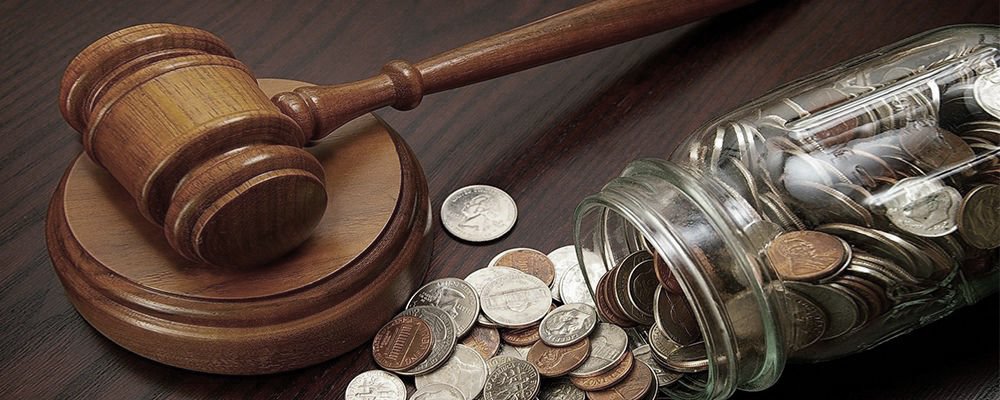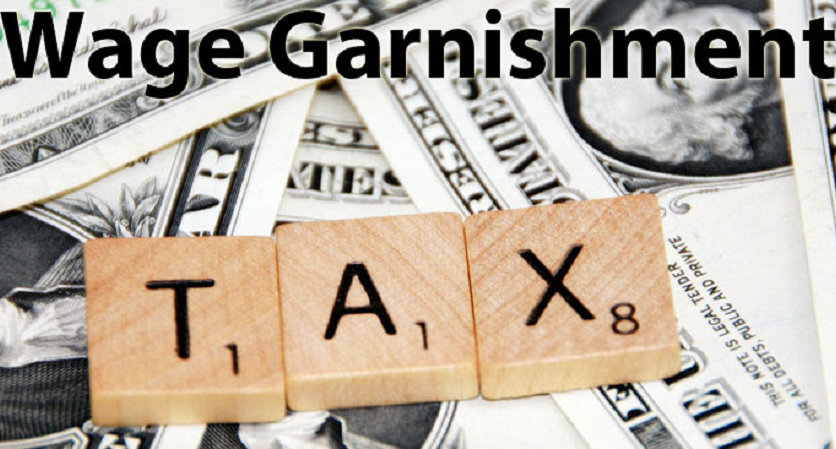An IRS wage garnishment is an order requiring your employer to withhold a certain portion of your wages and then forward these wages to the IRS until you have paid in full your back tax debt. The IRS can legally take all your wages except for the portion of wages needed to pay basic living expenses.
The IRS wage garnishment cannot be issued until the IRS has provided you notice they will be garnishing (taking) a portion of your paycheck. This is known as an intent to levy. Thirty days after this letter has been issued an IRS wage garnishment can be issued at the IRS’ discretion.


The best way to protect yourself from an IRS wage garnishment is to prevent the IRS from wanting to issue one in the first place. If you have a delinquent tax bill with the IRS and you ignore their repeated requests to bring current your taxes, they will attempt to collect the back taxes by taking a portion of your paycheck to credit toward your delinquent taxes.
By staying in communication with the IRS and working toward a resolution, you can prevent the IRS from going after your wages.
We can show you ways to keep the IRS at bay until you are able to resolve your back taxes. If you qualify, we can even show you how to do this without sending them a dime of your money.
If the IRS is currently taking a portion of your paycheck, you can stop a wage garnishment immediately. While this is a harder task than preventing an IRS wage garnishment, it still can be accomplished. In order to stop a wage garnishment immediately you will need either to prove that the wage garnishment is causing a financial hardship for you and your family or you will need to start the process of tax resolution.
Many times you can make a deal with the IRS and then they will stop a wage garnishment immediately. For example: If the IRS is garnishing (taking) $500 out of your paycheck, you would be better off entering into an agreement to pay $150 a month to have them release the IRS wage garnishment.
We explain more in our program on how stop a wage garnishment immediately by using a financial hardship classification or by starting the process of tax resolution.

There are 3 main ways to prevent an IRS wage garnishment:
Financial Hardship
The IRS is allowed to collect only what you can legally afford to pay. There are laws that protect you from the IRS taking all your money - no matter how much you owe them. The IRS by law has to allow you to pay for living expenses such as food, rent, mortgage, utilities, cars, gas, etc. Only after you are able to pay these bills can the IRS legally collect from you. If at the end of the month you have used all your money just on these living expenses, then the IRS cannot use an IRS wage garnishment to collect from you, nor are they allowed to collect from you by any other means. We show you how to use this law in your favor to prevent an IRS wage garnishment. We then can help you complete the paperwork to send to the IRS so they know that they cannot issue an IRS wage garnishment or attempt any other collection practices.Read more
Starting The Process of Tax Resolution
In most cases, unless you have abused IRS requests in the past, you can inform the IRS that you will be starting the process of tax resolution and they will give you time to prepare your paperwork and submit an offer for resolution. If done right, this should be a 5 – 10 minute conversation with the IRS that will give you peace of mind to know that the IRS won’t come after you for weeks or months. There are some things you need to know first before you talk with the IRS. Within 20 minutes of having access to our system, you will be armed with this information. This information will make you feel confident enough to reach out to the IRS. Many taxpayers are scared to make contact with the IRS, but if done right, it will bring you piece of mind.
Resolution Agreement
It doesn’t matter which program you use. As long as you are in a resolution program and living up to your end of the deal, the IRS can’t touch your wages. This also includes the Currently Not Collectable program where you do not have to make a payment. We will walk you through the steps of entering into a resolution agreement with the IRS that will work best for your situation and will help you settle your back taxes for the least amount.
Once an IRS wage garnishment has been issued it can very difficult to get back the money or other assets that the IRS has taken. It is possible in some situations to get the money back, but more importantly you need to stop a wage garnishment immediately so that they don’t take any more money from you. Then after you have immediately stopped the wage garnishment, you can work on getting back any assets they have taken.
Typically, once an IRS wage garnishment has been issued the only two ways to stop a wage garnishment immediately is either to show proof the wage garnishment is causing a financial hardship or to enter into a resolution agreement. We have discussed how we can help you with both these options in the immediate section above.
Getting Started
If an IRS wage garnishment has not been issued, it is the perfect time to start your tax resolution process. Starting the process before an IRS wage garnishment has been enacted means that you can complete the process on your timeline - not theirs, and without the added stress of not having a full paycheck. If you have already received an IRS intent to levy letter, you will want to start today to make sure you can protect your paycheck. Waiting makes stopping a wage garnishment immediately a much more difficult task. Time is of the essence.
We encourage to start with our FREE Pre-Qualifier so that you can make sure you are a good candidate for our tax resolution program, the Resolution Assistant. It’s FREE and we don’t ask for your credit card, date of birth or social security number. Don’t delay! Start today to protect your bank account and paycheck.